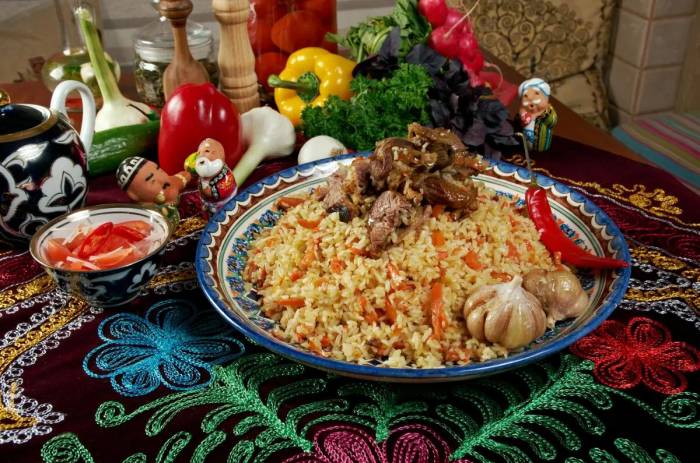Plov unites Uzbekistan as a symbol of heritage and community across generations
UNESCO recognition highlights the dish’s cultural significance while new flights boost culinary tourism to the region
2025-08-19

In Uzbekistan, a simple dish of rice has become a symbol of national identity and cultural heritage. Plov, the country’s most iconic meal, is more than just food. It is a tradition that brings together families and communities across generations. The importance of plov in Uzbek society has been recognized by UNESCO, which added it to its list of Intangible Cultural Heritage of Humanity.
Plov is prepared and shared at major life events, from weddings to holidays. Each region in Uzbekistan has its own version of the dish, with subtle differences in ingredients and cooking methods. In Tashkent, the capital, plov is known for its rich aroma and moist texture. In Samarkand, the second largest city, the dish stands out for its vibrant colors, thanks to an array of vegetables and spices.
The heart of plov culture can be found in Tashkent at Besh Qozon, which means “Five Cauldrons.” This venue is famous for producing up to 10 tons of plov daily. The open kitchen features massive iron pots called kazán, where teams of oshpazy—chefs who specialize exclusively in plov—work throughout the day. The setting is unique, located at the base of Tashkent’s television tower, a 375-meter structure that lights up the city skyline each night.
The basic ingredients of plov are rice, carrots, onions, and meat—usually lamb or beef—slow-cooked with spices such as cumin and coriander. The preparation is a communal act that reflects centuries-old customs. Making plov often involves several people and can take hours, especially when cooked for large gatherings.
Travelers interested in experiencing authentic Uzbek cuisine now have easier access thanks to direct flights from Madrid to Tashkent offered by Uzbekistan Airways. These flights operate every Monday until late October and allow visitors to explore the country’s culinary diversity within a week. Return flights are available from both Tashkent and Urgench, making it possible to tour different regions before heading home.
Uzbekistan’s appeal goes beyond its food. The country offers a safe environment for tourists and is known for its hospitality and rich cultural traditions. Visitors can taste freshly made plov at local markets or learn how to cook it themselves in workshops led by local chefs.
For those seeking genuine travel experiences centered on food and tradition, Uzbekistan stands out as a destination where history and gastronomy come together in every serving of plov.
Founded in 2007, Vinetur® is a registered trademark of VGSC S.L. with a long history in the wine industry.
VGSC, S.L. with VAT number B70255591 is a spanish company legally registered in the Commercial Register of the city of Santiago de Compostela, with registration number: Bulletin 181, Reference 356049 in Volume 13, Page 107, Section 6, Sheet 45028, Entry 2.
Email: [email protected]
Headquarters and offices located in Vilagarcia de Arousa, Spain.